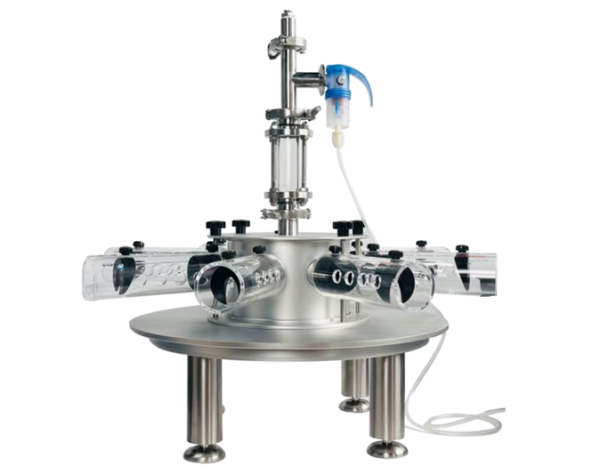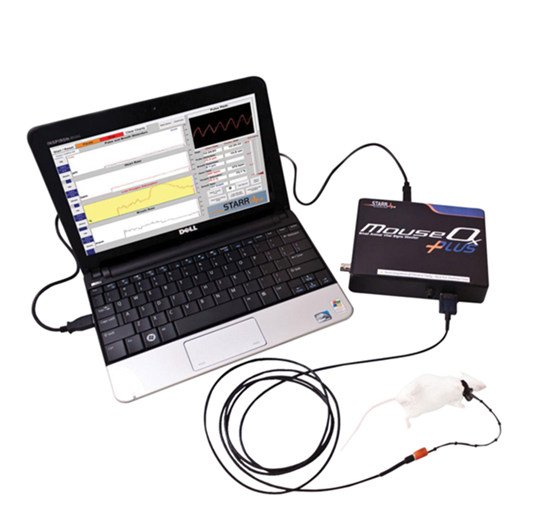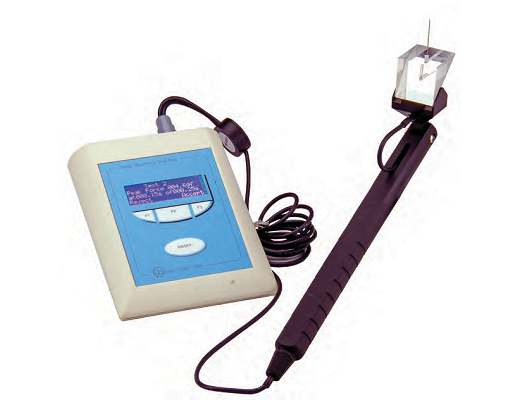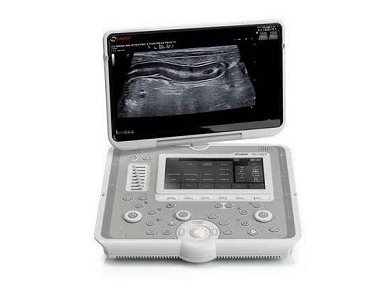取消
清空记录
历史记录
清空记录
历史记录
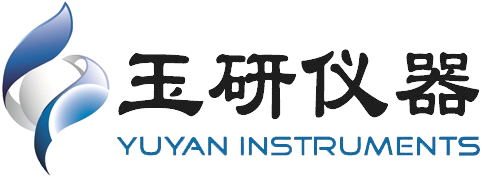

- 金年会 千亿球友会 千亿球友会 千亿球友会 千亿球友会 千亿球友会 千亿球友会 千亿球友会小动物步态分析仪大小鼠步态分析系统,是一套应用于啮齿动物自然行走时评估其运动缺陷和由疼痛引起的步态变化的研究设备。该设备主要包括三大核心部分,行走台、高速摄像系统和分析软件,使用时,动物的行为可以经由行走台被高速摄像机记录下来,再由分析软件对行为进行计量和分析。产品详情
步行是动物正常活动的基础,步态是步行的行为特征。步态分析就是研究步行规律的检查方法,旨在通过生物力学和运动学手段,揭示步态异常的关键环节和影响因素,从而指导康复评估和治疗,也有助于临床诊断、疗效评定及损伤机制的研究等。
步态分析主要应用于神经创伤、神经性萎缩、神经疾病、以及疼痛症状群的动物模型。如脊索损伤、神经性疼痛、关节炎、运动失调、脑损伤、外周神经损伤等疾病的研究。

产品特点
1. 高分辨率成像系统,可以清晰完整的拍摄动物的行走情况 ;
2. 使用镜面反射成像,使动物的爪印、步态、关节同时成像在一个视野 ;
3. 具有可调的灯光系统,可以使动物爪印和关节在视野中清晰呈现 ;
4. 具有步态分析和关节分析模块,可以分析老鼠每个步行的时间与空间特征、关节角度、步跨、步长、步宽和步态速度等 ;
5. 使用黑白式仓体,动物自主步行通过步行台,无需额外奖励或惩罚 ;
6. 步骤式引导软件,可以使实验人员快速熟悉和上手 ;
7. 支持多通道数据分析,可以一次性分析15组数据,节省分析时间;
8. 使用阿基里斯指数评估跟腱肌肉运动能力,使用坐骨神经指数评估坐骨神经功能 ;
9. 数据自动计算和分析,直接导出统计结果图表

应用场景
1. 动物运动功能恢复评估
可用于动物坐骨神经再生后的神经肌肉恢复情况,用以评价动物的运动功能;
2. 半帕金森动物的运动学分析
使用步态分析仪分析了大鼠地上运动时的时空步态指标和运动学信息,该步态分析方法可准确检测大鼠运动功能的变化,为动物模型新治疗方法的研究提供客观评价;
3. 特殊运动测试
对动物的特殊行为进行测试,可拍摄和处理分析慢性纤维肌痛小鼠在整个步态周期和游泳过程中的图片,对小鼠计步、量化运动时前肢和后肢的协调性、运动信息、动物运动空间位置进行测量。

大鼠步行平台

小鼠步行平台
配置规格


文献列表
[1] Hong C K, Yeh M L, Chang C H, et al. Comparison of changes in shoulder functions between biceps tenotomy and tenodesis in an animal model[J]. Asia-Pacific Journal of Sports Medicine, Arthroscopy, Rehabilitation and Technology, 2019, 15: 17-22.
[2] Ko P Y, Yang C C, Kuo Y L, et al. Schwann-cell autophagy, functional recovery, and scar reduction after peripheral nerve repair[J]. Journal of Molecular Neuroscience, 2018, 64: 601-610.
[3] Chen Y H, Kuo T T, Kao J H, et al. Exercise ameliorates motor deficits and improves dopaminergic functions in the rat hemi-Parkinson’s model[J]. Scientific Reports, 2018, 8(1): 3973.
[4] Hsueh S C, Chen K Y, Lai J H, et al. Voluntary physical exercise improves subsequent motor and cognitive impairments in a rat model of Parkinson’s disease[J]. International journal of molecular sciences, 2018, 19(2): 508.
[5] Hsueh Y Y, Chang Y J, Huang T C, et al. Functional recoveries of sciatic nerve regeneration by combining chitosan-coated conduit and neurosphere cells induced from adipose-derived stem cells[J]. Biomaterials, 2014, 35(7): 2234-2244.
[6] Liang J I, Lin P C, Chen M Y, et al. The effect of tenocyte/hyaluronic acid therapy on the early recovery of healing Achilles tendon in rats[J]. Journal of Materials Science: Materials in Medicine, 2014, 25: 217-227.
[7] Tsai Y P, Chang C W, Lee J S, et al. Direct radiofrequency application improves pain and gait in collagenase-induced acute achilles tendon injury[J]. Evidence-Based Complementary and Alternative Medicine, 2013, 2013.
[8] Lee T T Y, Tsai C F, Hsieh T H, et al. Ectopic pregnancy-derived human trophoblastic stem cells regenerate dopaminergic nigrostriatal pathway to treat parkinsonian rats[J]. PloS one, 2012, 7(12): e52491.
[9] Liang J I, Chen M Y, Hsieh T H, et al. Video-based gait analysis for functional evaluation of healing achilles tendon in rats[J]. Annals of biomedical engineering, 2012, 40: 2532-2540.
[10] Lee H Y, Hsieh T H, Liang J I, et al. Quantitative video-based gait pattern analysis for hemiparkinsonian rats[J]. Medical & biological engineering & computing, 2012, 50: 937-946.
[11] Hsieh T H, Chen J J J, Chen L H, et al. Time-course gait analysis of hemiparkinsonian rats following 6-hydroxydopamine lesion[J]. Behavioural brain research, 2011, 222(1): 1-9.
更多产品资料,敬请来电咨询。
小动物步态分析仪
大小鼠步态分析系统,是一套应用于啮齿动物自然行走时评估其运动缺陷和由疼痛引起的步态变化的研究设备。该设备主要包括三大核心部分,行走台、高速摄像系统和分析软件,使用时,动物的行为可以经由行走台被高速摄像机记录下来,再由分析软件对行为进行计量和分析。产品详情步行是动物正常活动的基础,步态是步行的行为特征。步态分析就是研究步行规律的检查方法,旨在通过生物力学和运动学手段,揭示步态异常的关键环节和影响因素,从而指导康复评估和治疗,也有助于临床诊断、疗效评定及损伤机制的研究等。
步态分析主要应用于神经创伤、神经性萎缩、神经疾病、以及疼痛症状群的动物模型。如脊索损伤、神经性疼痛、关节炎、运动失调、脑损伤、外周神经损伤等疾病的研究。

产品特点
1. 高分辨率成像系统,可以清晰完整的拍摄动物的行走情况 ;
2. 使用镜面反射成像,使动物的爪印、步态、关节同时成像在一个视野 ;
3. 具有可调的灯光系统,可以使动物爪印和关节在视野中清晰呈现 ;
4. 具有步态分析和关节分析模块,可以分析老鼠每个步行的时间与空间特征、关节角度、步跨、步长、步宽和步态速度等 ;
5. 使用黑白式仓体,动物自主步行通过步行台,无需额外奖励或惩罚 ;
6. 步骤式引导软件,可以使实验人员快速熟悉和上手 ;
7. 支持多通道数据分析,可以一次性分析15组数据,节省分析时间;
8. 使用阿基里斯指数评估跟腱肌肉运动能力,使用坐骨神经指数评估坐骨神经功能 ;
9. 数据自动计算和分析,直接导出统计结果图表

应用场景
1. 动物运动功能恢复评估
可用于动物坐骨神经再生后的神经肌肉恢复情况,用以评价动物的运动功能;
2. 半帕金森动物的运动学分析
使用步态分析仪分析了大鼠地上运动时的时空步态指标和运动学信息,该步态分析方法可准确检测大鼠运动功能的变化,为动物模型新治疗方法的研究提供客观评价;
3. 特殊运动测试
对动物的特殊行为进行测试,可拍摄和处理分析慢性纤维肌痛小鼠在整个步态周期和游泳过程中的图片,对小鼠计步、量化运动时前肢和后肢的协调性、运动信息、动物运动空间位置进行测量。

大鼠步行平台

小鼠步行平台
配置规格


文献列表
[1] Hong C K, Yeh M L, Chang C H, et al. Comparison of changes in shoulder functions between biceps tenotomy and tenodesis in an animal model[J]. Asia-Pacific Journal of Sports Medicine, Arthroscopy, Rehabilitation and Technology, 2019, 15: 17-22.
[2] Ko P Y, Yang C C, Kuo Y L, et al. Schwann-cell autophagy, functional recovery, and scar reduction after peripheral nerve repair[J]. Journal of Molecular Neuroscience, 2018, 64: 601-610.
[3] Chen Y H, Kuo T T, Kao J H, et al. Exercise ameliorates motor deficits and improves dopaminergic functions in the rat hemi-Parkinson’s model[J]. Scientific Reports, 2018, 8(1): 3973.
[4] Hsueh S C, Chen K Y, Lai J H, et al. Voluntary physical exercise improves subsequent motor and cognitive impairments in a rat model of Parkinson’s disease[J]. International journal of molecular sciences, 2018, 19(2): 508.
[5] Hsueh Y Y, Chang Y J, Huang T C, et al. Functional recoveries of sciatic nerve regeneration by combining chitosan-coated conduit and neurosphere cells induced from adipose-derived stem cells[J]. Biomaterials, 2014, 35(7): 2234-2244.
[6] Liang J I, Lin P C, Chen M Y, et al. The effect of tenocyte/hyaluronic acid therapy on the early recovery of healing Achilles tendon in rats[J]. Journal of Materials Science: Materials in Medicine, 2014, 25: 217-227.
[7] Tsai Y P, Chang C W, Lee J S, et al. Direct radiofrequency application improves pain and gait in collagenase-induced acute achilles tendon injury[J]. Evidence-Based Complementary and Alternative Medicine, 2013, 2013.
[8] Lee T T Y, Tsai C F, Hsieh T H, et al. Ectopic pregnancy-derived human trophoblastic stem cells regenerate dopaminergic nigrostriatal pathway to treat parkinsonian rats[J]. PloS one, 2012, 7(12): e52491.
[9] Liang J I, Chen M Y, Hsieh T H, et al. Video-based gait analysis for functional evaluation of healing achilles tendon in rats[J]. Annals of biomedical engineering, 2012, 40: 2532-2540.
[10] Lee H Y, Hsieh T H, Liang J I, et al. Quantitative video-based gait pattern analysis for hemiparkinsonian rats[J]. Medical & biological engineering & computing, 2012, 50: 937-946.
[11] Hsieh T H, Chen J J J, Chen L H, et al. Time-course gait analysis of hemiparkinsonian rats following 6-hydroxydopamine lesion[J]. Behavioural brain research, 2011, 222(1): 1-9.
更多产品资料,敬请来电咨询。
更多推荐 选择区号
选择区号




 浏览器自带分享功能也很好用哦~
浏览器自带分享功能也很好用哦~










